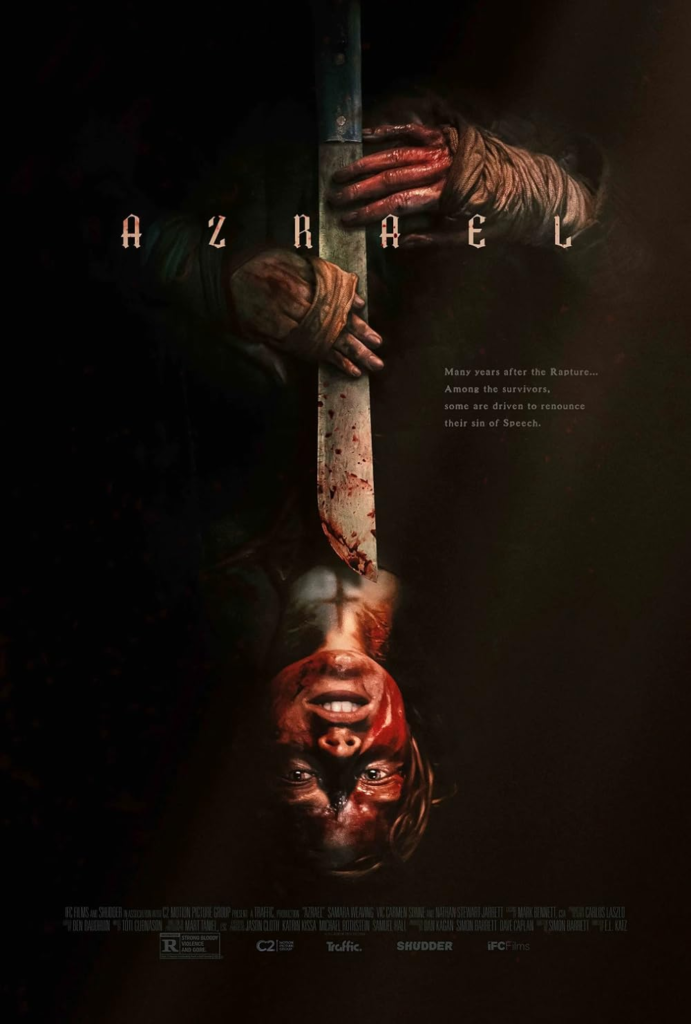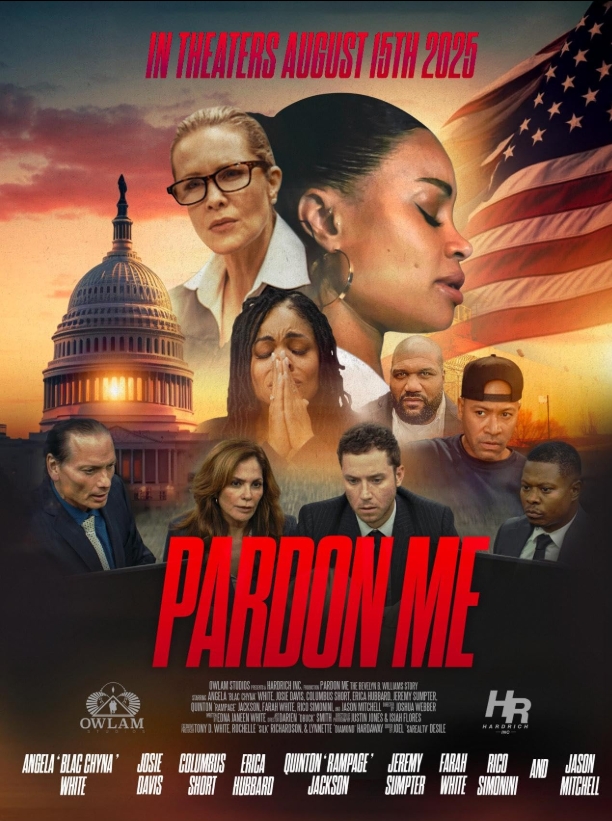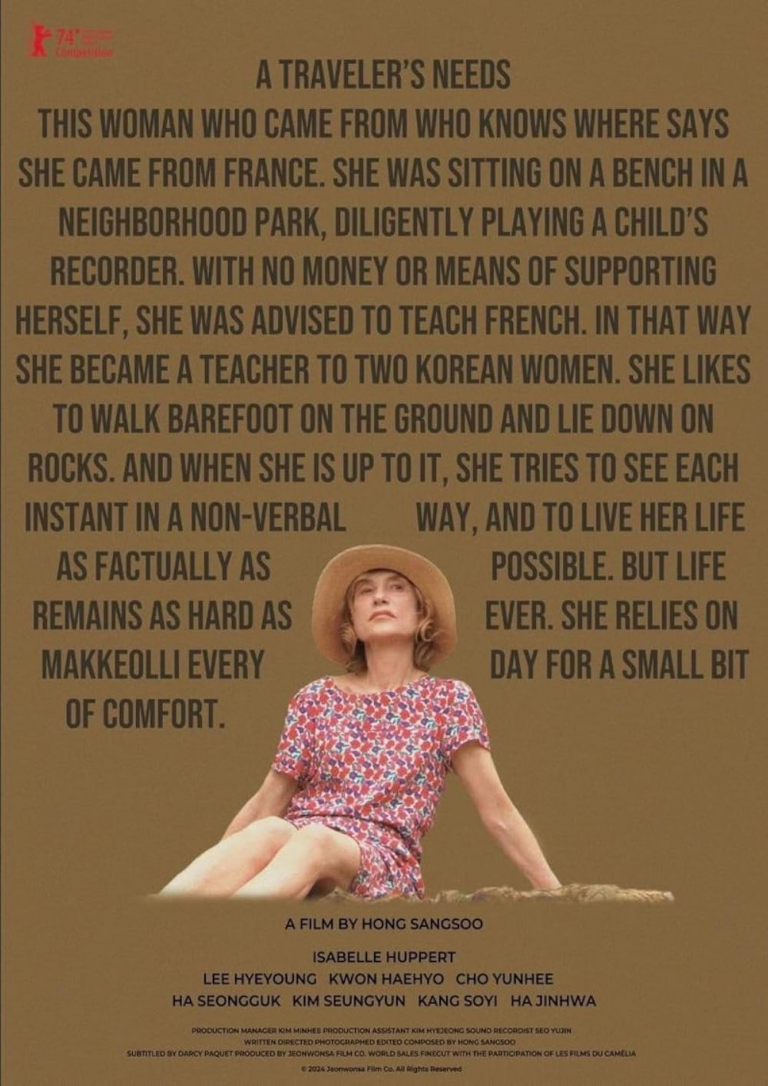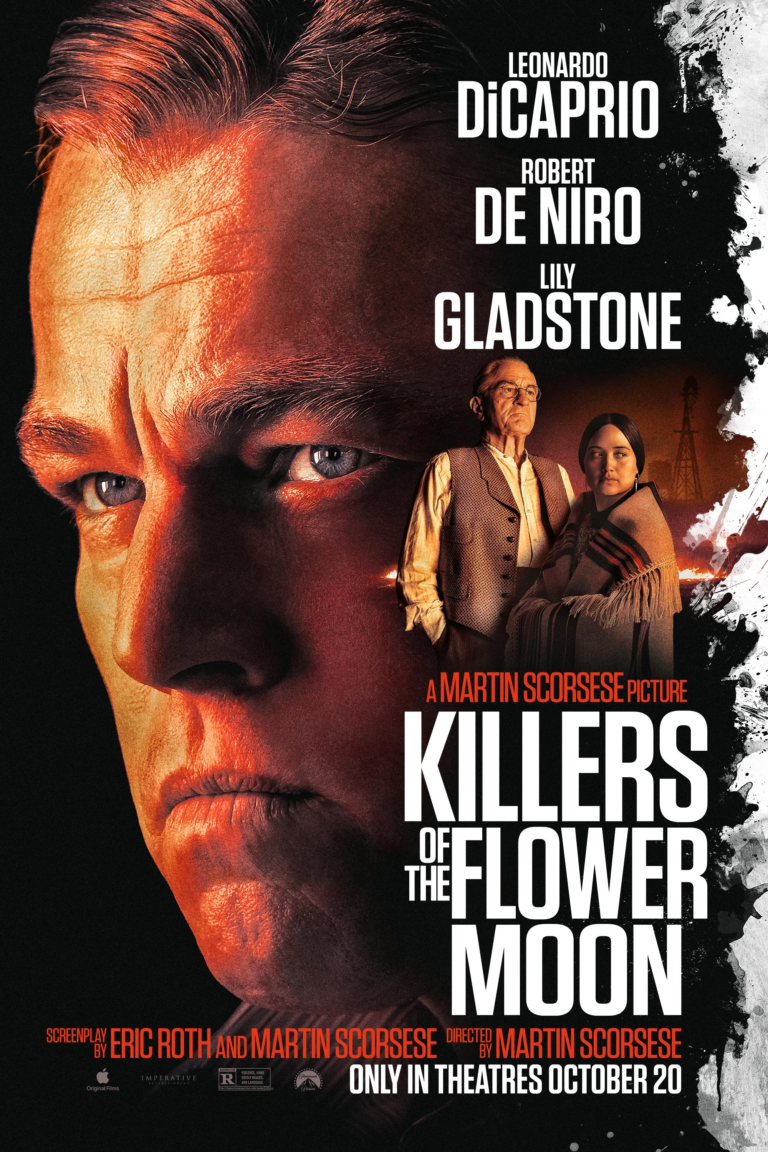Azrael Christian Review

There’s something eerie about silence, especially in the world of cinema. No words to anchor you, no dialogue to reassure you that things will be alright. Just a lead actor fighting through an oppressive quiet. Azrael, the latest venture into the realms of horror-thriller, takes this silence and runs with it—or perhaps, stumbles with it. It’s a film that’s both fascinating and flawed, offering just enough to make you stay, but not quite enough to leave you feeling satisfied.
But let’s talk about the silent gamble first. Silence, after all, isn’t exactly a fresh concept in film, but it’s a daring one for an action-horror piece. For the most part, Azrael works on this risk. We’re dropped into a world that feels desolate, drained of sound, where the lack of chatter adds to the oppressive atmosphere. It’s immersive, yes, but also claustrophobic, and not always in a good way. You can’t help but feel that there’s more that could’ve been said—literally and figuratively.
The Gritty World of Samara Weaving
Then, there’s Samara Weaving, a name you’ve probably heard before if you’re a fan of horror. Her character doesn’t speak much, but that’s kind of the point. The entire film rests on her shoulders, and she carries it with the kind of physical and emotional grit that we’ve come to expect from her. There’s something mesmerizing about watching her fight for survival—this isn’t a damsel in distress, but a woman fully aware that no one’s coming to save her. Her character reflects a primal human need to survive, and Weaving gives it everything she has.
But here’s where things get tricky. Weaving’s performance is powerful, yet the character she portrays feels oddly hollow at times. Not because of her, but because the script gives her so little to work with in terms of backstory or depth. You see her running, fighting, surviving, but you’re never quite sure who she is or why you should care. It’s as though we’ve been handed a beautiful painting with missing brushstrokes.
This raises a key issue in Azrael—the silence, which is meant to build suspense, ends up working against the film. It leaves the audience in the dark, not just about the plot, but about the emotional lives of the characters. We’re watching events unfold, but we’re never given much insight into why anything is happening, or how the characters feel about it. The result? A visually interesting film that ultimately feels distant and disconnected.
An Underdeveloped World
Azrael presents a post-apocalyptic landscape that looks fantastic on screen but lacks the depth to be truly immersive. The film feels more like a snapshot than a fleshed-out universe. It teases an interesting backstory, but never fully explores it. You’re left wondering: why is this world the way it is? What exactly are the stakes? There’s a vagueness to everything that feels deliberate, but also frustrating.
In this sense, the film shares similarities with some of the more artsy, high-concept horror films that have been popular in recent years. There’s a focus on atmosphere and mood, but less on plot and character development. While this works for some movies, Azrael seems like it’s trying to balance both—being an action-packed survival thriller and an atmospheric, artsy piece—but doesn’t quite nail either.
Horror Without the Heart
Horror as a genre often touches on deep human fears—fears of death, of isolation, of the unknown. Azrael flirts with these ideas, but never commits to exploring them in any meaningful way. Weaving’s character is clearly scared, but we never get to feel her fear. We see her struggle, but the emotional impact is muted. There’s no moment of catharsis, no sense that her journey has meaning beyond simply staying alive.
And maybe that’s the point. Maybe Azrael is meant to be a story about survival for survival’s sake, about the raw, animalistic drive to keep going no matter what. But even so, it feels like a missed opportunity. Horror is at its best when it makes us confront not just external threats, but internal ones as well—our own insecurities, doubts, and spiritual crises. Azrael doesn’t seem interested in these deeper questions.
From a Christian perspective, the lack of a moral or spiritual core in the story is noticeable. There’s no discussion of redemption, no exploration of the soul, no reckoning with the existence of evil beyond the immediate threat the characters face. While not every horror film needs to have a deep theological message, it’s always nice when a story offers something to chew on spiritually. Azrael leaves that plate empty.
The Limits of Silence
Now, let’s circle back to the film’s central gimmick: silence. In theory, silence in horror can work wonders. It can heighten tension, force the audience to focus on every small sound, every tiny movement. But here’s the thing about silence—it only works when it’s used sparingly, or when it’s counterbalanced by something else, like a strong narrative or well-developed characters. In Azrael, the silence becomes overwhelming because there’s not enough substance to fill the void.
The quiet moments are supposed to be haunting, but instead, they often feel hollow. You’re waiting for something to happen, but nothing does. The lack of dialogue leaves the characters feeling flat, and the plot feels thin because there’s nothing to anchor it. By the end, the silence feels less like a creative choice and more like a missed opportunity.
A Flicker of Brilliance, But Not Enough
Despite all of this, Azrael isn’t without its moments of brilliance. There are scenes where the tension is palpable, where you’re on the edge of your seat, waiting to see what will happen next. And Weaving, as mentioned earlier, is a force to be reckoned with. She brings an intensity to her role that elevates the material, even when the story around her falters.
But these moments are fleeting. The film never fully capitalizes on its potential. It’s as if the filmmakers had a great idea—a world of silence, a lone survivor—but didn’t quite know what to do with it. The result is a film that’s visually striking but emotionally and thematically underwhelming.
Final Thoughts: An Ambitious Misfire
In the end, Azrael is a film that takes risks, but those risks don’t always pay off. It’s a visually interesting experiment in silence and survival, but it’s held back by a lack of character development, a thin plot, and an over-reliance on its central gimmick.
From a Christian viewpoint, the film misses an opportunity to explore deeper themes of redemption, hope, or the nature of evil. It’s a story about survival, but without much heart or soul behind it. For those looking for a thought-provoking horror film, Azrael might not be the answer. But if you’re in the mood for something atmospheric and different, it’s worth a watch—just don’t expect it to stay with you after the credits roll.






